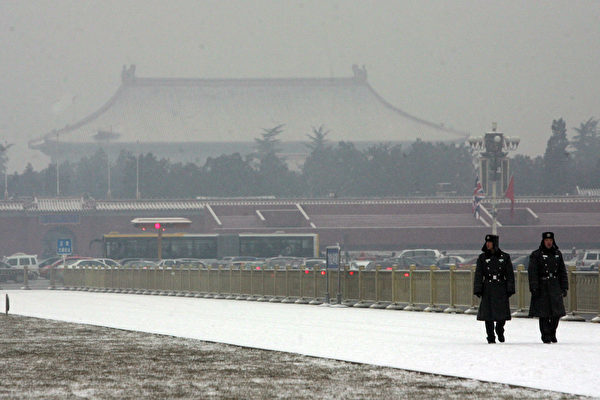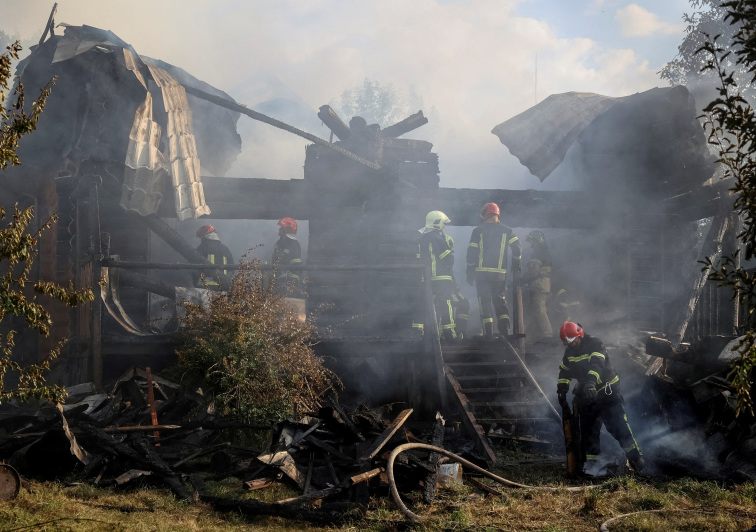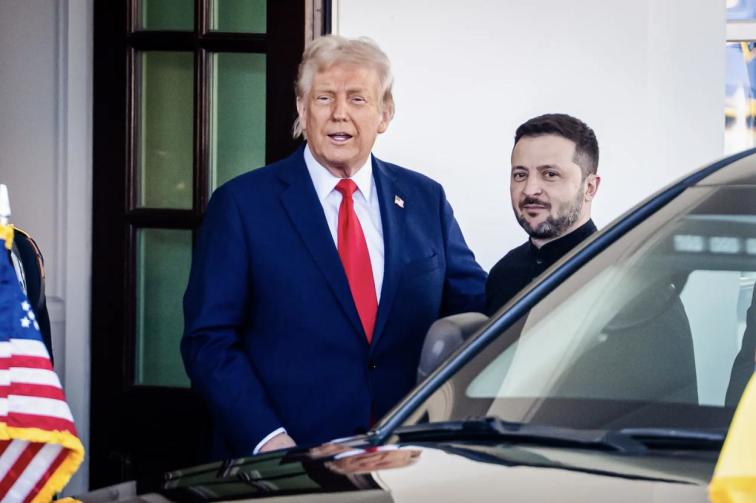On August 9, Beijing will hold a rehearsal for the “September 3rd” military parade. After 6 p.m., Chang’an Avenue will be closed off; no vehicles or pedestrians will be allowed to enter. (Screenshot from video / Composite by Dajiyuan)
[People News] The military parade in Beijing on September 3 is approaching. The Chinese Communist Party has released the list of foreign guests, but the seating arrangement on the viewing platform remains a closely guarded secret. However, Russian media has taken the initiative to disclose that Russian President Vladimir Putin and North Korean leader Kim Jong-un will be seated on either side of Xi Jinping. Kim Jong-un's attendance was actually an unexpected development for the Chinese Ministry of Foreign Affairs, but Wang Huning, Chairman of the National Committee of the Chinese People's Political Consultative Conference, and Cai Qi, Secretary of the Secretariat of the Central Committee of the Communist Party of China, have supported hosting Kim Jong-un with the same level of respect as that afforded to Putin.
The seating arrangement for foreign guests at the military parade is likely to reflect various sensitive political intentions, and Beijing has historically kept such information confidential. According to a report from the Central News Agency, the Russian news agency Sputnik revealed in advance on the 30th that at the Beijing military parade on September 3, Putin will be seated to the right of Xi Jinping, while North Korean State Affairs Commission Chairman Kim Jong-un will be seated to the left. The report also noted that this seating information was disclosed to the media by Kremlin advisor Yuri Ushakov.
In reality, Beijing had not anticipated Kim Jong-un's attendance at the parade. Taiwanese media outlet 'Shang Bao' reported on August 28, citing sources in Beijing, that the CCP's foreign affairs department had originally calculated that North Korea was facing economic difficulties, and its involvement in the Ukrainian conflict had resulted in significant troop losses. Therefore, it was expected that Kim Jong-un would only appoint Kim Yong-chol, the Secretary of the Central Committee of the Workers' Party of Korea, to represent him. Unexpectedly, Kim Jong-un readily agreed to attend.
Reports indicate that the recent military parade has sparked a division of opinion within the Chinese Communist Party (CCP). The CCP's Ministry of Foreign Affairs initially aimed to convey a message of 'preparedness without war' through the event. However, the simultaneous presence of Russia, which instigated the war in Ukraine, Iran, a source of turmoil in the Middle East, and North Korea, which poses a threat to the Korean Peninsula, alongside the CCP's threats regarding the first island chain, has brought these four nations together in a single frame. This has inadvertently strengthened the international community's negative perception of the so-called 'Axis of Evil' (CRINK), leading to the failure of the CCP's plan to project a peaceful image during the September 3 ceremony.
Sources suggest that despite the anxiety caused by these developments within the CCP's Ministry of Foreign Affairs, which was primarily responsible for the invitations, senior officials Wang Huning and Cai Qi believe that the CCP should maintain its own stance regardless of Western boycotts. They also strongly support hosting Kim Jong-un with a reception on par with that of Vladimir Putin.
Another critical issue arises from South Korean President Lee Jae-myung's ambiguous response after receiving the invitation, ultimately resulting in only National Assembly Speaker Yoo Won-sik attending as a representative. This has left Beijing dissatisfied and eager to elevate Kim Jong-un's status.
Wang Huning and Cai Qi reportedly believe that the CCP's alignment with Russia, North Korea, and Iran could create negotiation pressure on the United States. Additionally, this moment presents an opportunity to pressure the newly inaugurated Lee Jae-myung to align more closely with Beijing, thereby increasing pressure on Japan. Should the United States consider taking political or economic actions against Beijing, it will likely proceed with caution. This includes Beijing's potential involvement in the Middle East and the Russia-Ukraine conflict, providing the CCP with more leverage to utilise.
While the CCP has not confirmed the seating arrangements reported by Russian media, it has ignited discussions among Chinese netizens.
Netizens have noted that during the Beijing military parade on September 3, 2015, Xi Jinping was flanked on his left by both current and retired senior officials of the Communist Party of China. The first three individuals seated to his left were, in order, former General Secretary Jiang Zemin, Hu Jintao, and the current Chairman of the National People's Congress, Zhang Dejiang.
Speculation arose among netizens about how the seating arrangement for current and retired senior officials of the Communist Party would be organised if Kim Jong-un were to sit on Xi Jinping's left during this military parade. Some argued that since Kim Jong-un is considered a little brother of the Communist Party, it would be reasonable for him to sit alongside the Party's senior officials.
Additionally, some netizens humorously pointed out that Vladimir Putin, who was seated on Xi Jinping's right, is a wanted criminal, while Kim Jong-un, sitting on the left, is under international sanctions.
Putin is wanted internationally for his role in the Russia-Ukraine war, with the International Criminal Court (ICC) accusing him in 2023 of war crimes, including the illegal deportation of Ukrainian children to Russia.
In contrast, Kim Jong-un faces international warrants and sanctions due to the Russia-Ukraine conflict and his nuclear ambitions. Since North Korea began its nuclear tests in 2006, it has been subjected to ongoing sanctions from the United Nations Security Council, the United States, and South Korea, which have limited North Korea's financial activities, metal and energy imports and exports, and labour mobility.
On August 28, the Chinese state media outlet Xinhua released a list of 26 foreign heads of state and government leaders who attended the September 3 military parade, revealing a collective absence of Western nations. △











News magazine bootstrap themes!
I like this themes, fast loading and look profesional
Thank you Carlos!
You're welcome!
Please support me with give positive rating!
Yes Sure!